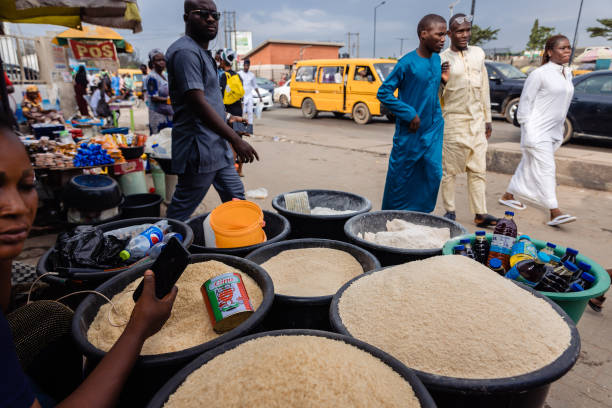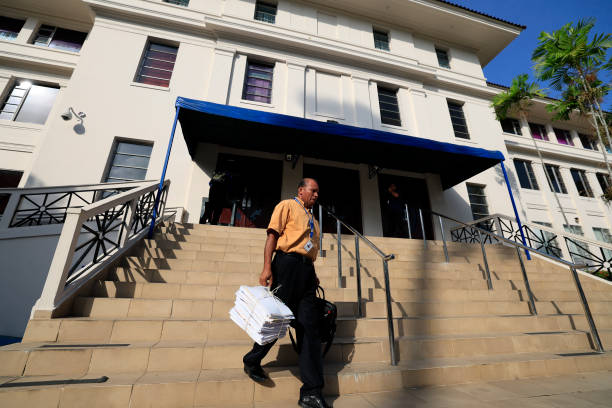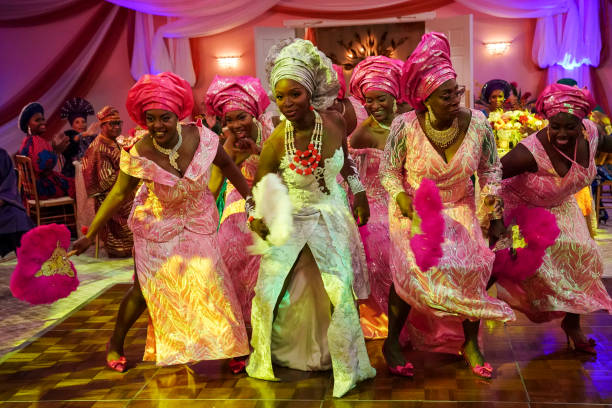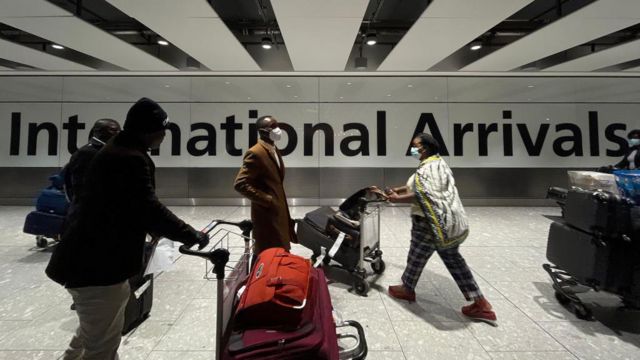It’s not easy to shock a Nigerian. We’ve seen it all — from missing snakes swallowing government funds to generators powering entire neighbourhoods. But these days, even the most unshakeable Nigerians are whispering “God abeg” at market stalls and petrol stations.
Across the country, the rising cost of living is stretching pockets, testing patience, and forcing people to get creative in ways only Nigerians can.
Rice Now Has Bodyguard
“I used to buy a bag of rice like I was buying indomie. Now I treat it like gold,” says Mrs. Favour, a mother of four in Benin City. “We now buy in cups. In fact, the rice seller near me locks her shop like she’s selling Rolex.”
Food prices have gone through the roof. A litre of palm oil that used to cost ₦800 now goes for ₦1,600. A loaf of bread? Now flirting with ₦1,500 in some areas. Tomatoes? Don’t even go there — some families have switched to tin tomato, others are using pepper and prayer.
Yet, amid the hardship, Nigerians are adapting with humour, resilience, and hustle.
From Office Job to Okrika Queen
“I had to pivot,” says Ada, a former bank staff in Abuja who lost her job early this year. Now, she runs a thriving second-hand clothes business from her living room and WhatsApp. “Okrika is not just business; it’s survival. People still want to look good, but on a budget.”
She calls it “Affordable Slay Enterprise.”
Her customers? Bankers, teachers, even celebrities. “They just don’t tag me on Instagram,” she laughs.
Across major cities, more people are turning side hustles into main hustles. From selling food in reused yoghurt containers to remote gigs on Fiverr and Upwork, young Nigerians are doing all they can to stay afloat.
Fuel for Thought
The removal of petrol subsidy in 2023 shook many Nigerians to the core. What was once a national addiction — the daily fueling of cars and generators — became a luxury. In Lagos, commuters now think twice before entering a keke that charges ₦500 for a short trip.
“I now trek with dignity,” jokes Kunle, a university student in Lagos. “My fitness is improving, but my shoes are crying.”
Some have turned to bicycles. Others now work remotely to save on transport. For those in rural areas, it’s a return to charcoal and firewood. Not for style or nostalgia — just survival.
Landlords Now Collect in Slices
Rent is another war zone.
Landlords, no longer smiling, are adjusting their rates faster than you can say “tenancy expired.” In Abuja, a two-bedroom flat that cost ₦500,000 now goes for ₦800,000 or more.
To cope, many families are downsizing, sharing apartments, or relocating to the outskirts.
“I moved from Gwarinpa to Suleja,” says Musa, a civil servant. “Longer commute, but I save on rent and breathe better air. Small wins.”
Some landlords now accept quarterly payments — a trend born from necessity. Others have become amateur psychologists, listening to excuses and broken promises with the patience of Job.
Silent Suffering in Plain Sight
Beyond the hustle and humour lies a deeper, quieter pain.
Many families now skip meals. Some children drop out of school because fees are no longer affordable. Hospitals are reporting more cases of stress-related illnesses. Mental health clinics, once considered luxury, are seeing more foot traffic.
“We are a strong people,” says Dr. Onyema, a psychiatrist in Port Harcourt. “But strength doesn’t mean we’re not suffering. People are bottling a lot.”
In the middle of all this, Nigerians still show up — to work, to weddings, to protests, to church. It’s a mix of faith, fatigue, and a refusal to be defeated.
There’s an unspoken rule in Nigeria: you can cry today, but you must hustle tomorrow. It’s why the suya man still smiles, why the tailor still promises “next week” with confidence, and why the small chops vendor still dreams of catering for Dangote’s wedding.
The economic hardship is real. But so is the spirit of survival.
As Ada the Okrika Queen puts it: “We no dey give up. We just dey rebrand our hustle.”
Because in Nigeria, survival is not just a necessity — it’s a national art form.
#ThisIsAfrica #NaijaSurvival #CostOfLiving





